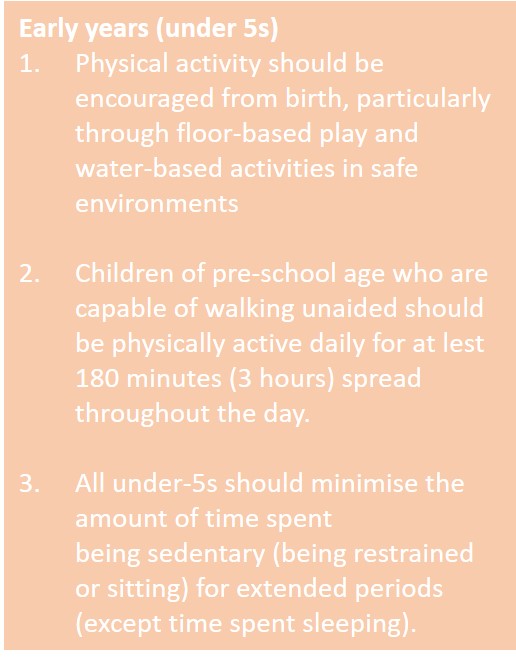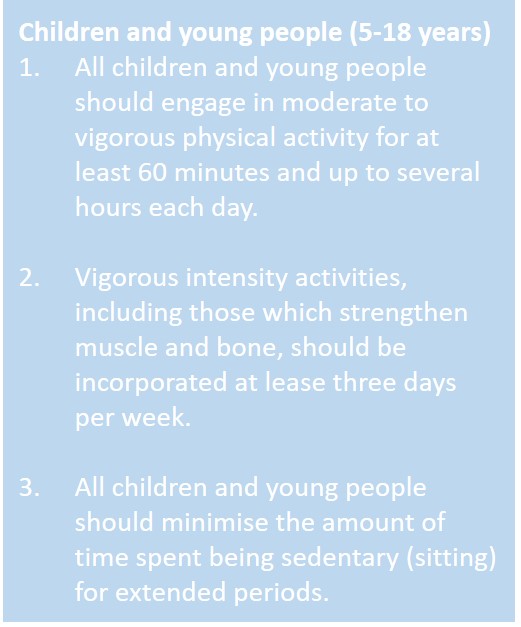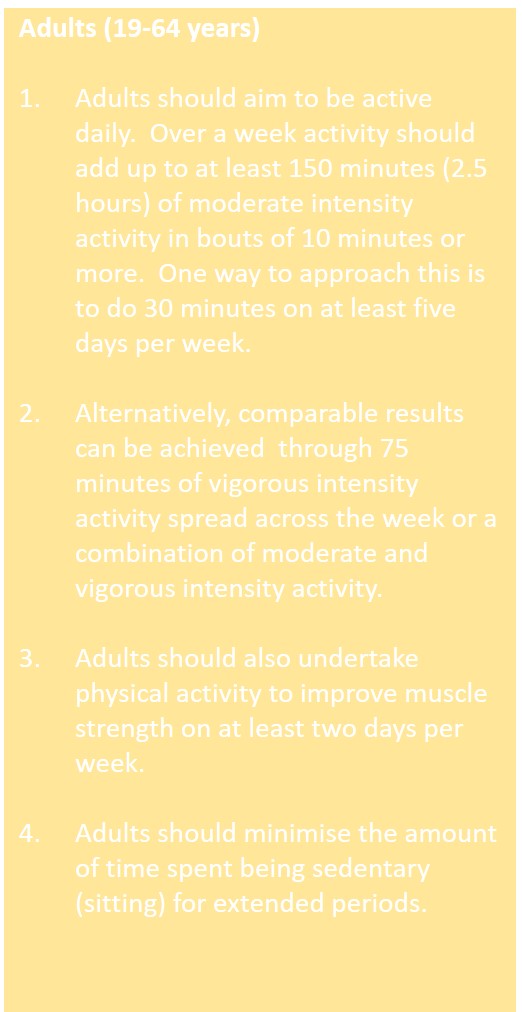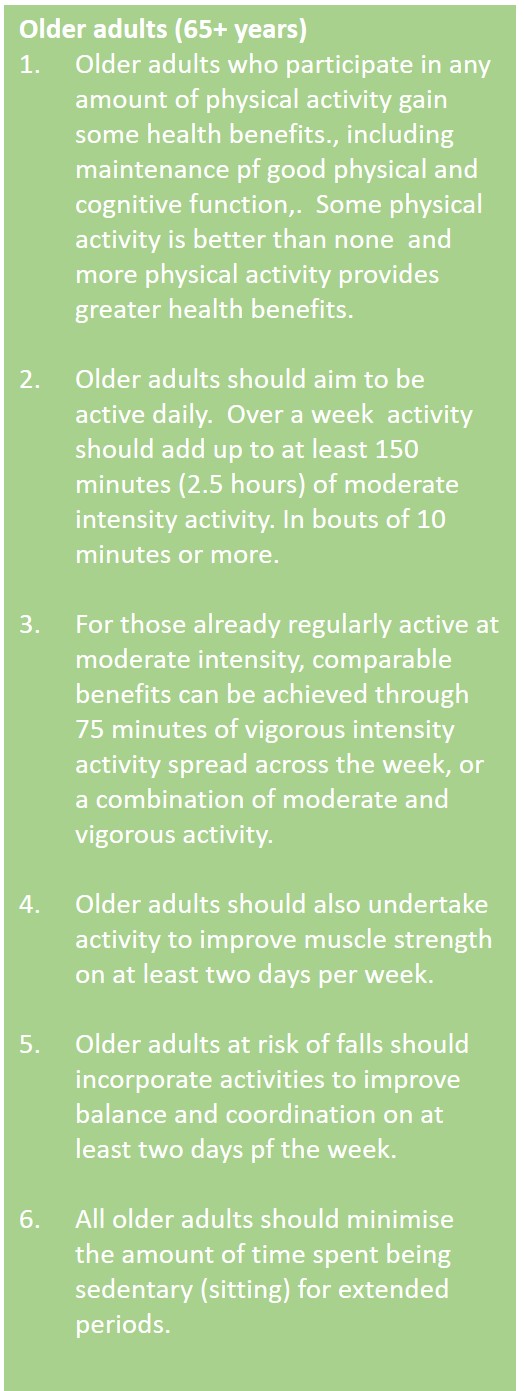Much research has been carried out over recent years to determine the adequate amount of physical activity for each age-group to help protect against development of some of the diseases discussed. This is advice for the general population, and is accepted that those with existing conditions such as MS may find this a challenge due to mobility challenges or other symptoms causing difficulty. The baseline advice is to try to 'move' as much as possible and aim to limit the time spent in sedentary activities (eg sitting). For those with MS there are various adaptations to exercises that you can consider based on any specific limitations. The MS Trust has an excellent section on specific exercises which may be suitable (www.mstrust.org.uk/understanding-ms/lifestyle/exercises-people-ms).
**UPDATE** See earlier tab for latest published MS-specific physical activity guidelines
**UPDATE** See earlier tab for latest published MS-specific physical activity guidelines
Please remember that these guidelines are only laid out here to show a general population benchmark; many people with MS may find this challenging due to mobility, fatigue or other symptoms; this is not meant as a competitive challenge. It can be useful to benchmark your own capabilities by seeing what you can achieve; remember you are only working on bettering your own last attempt at an exercise so be mindful of comparing yourself to others: you are unique in your own abilities.
**UPDATE** See earlier tab for latest published MS-specific physical activity guidelines
**UPDATE** See earlier tab for latest published MS-specific physical activity guidelines
Sources:
GOV.UK (2011) 'Start active, stay active'. A report on physical activity from the four home counties' Chief Medical Officers. Available online at: www.sportengland.org/media/2928/dh_128210.pdf
GOV.UK (2011) 'Start active, stay active'. A report on physical activity from the four home counties' Chief Medical Officers. Available online at: www.sportengland.org/media/2928/dh_128210.pdf




